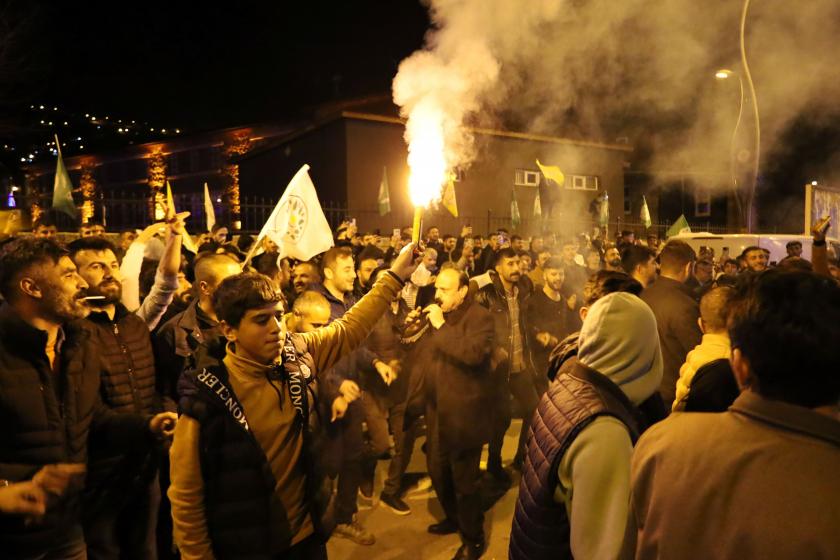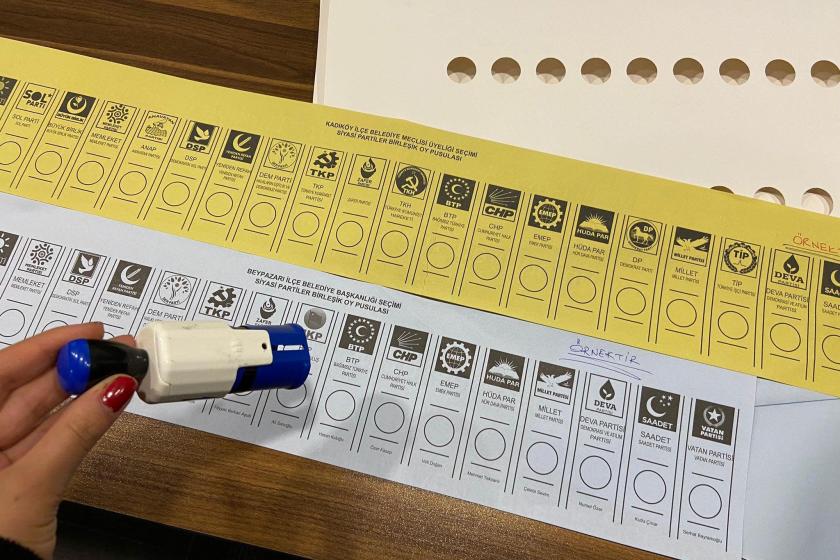Eda AKTAŞ
İzmir
Assessing the recently announced Judicial Reform package, Trade Union of Judges Chair Ayşe Sarısu Pehlivan noted that judges and republic prosecutors, who did not know what fate would await them if required to pass a decision that earns political disfavour, were suffering trauma and stated that members of the judiciary did not think they could defend the law itself.
The Judicial Reform Strategy Document that is expected to affect the existing judicial order was released last week by President and AKP General Chair Tayyip Erdoğan. Trade Union of Judges Chair Ayşe Sarısu Pehlivan, assessing for our newspaper the package that comes with claims about the right to a fair trial and an independent and impartial judiciary, said, “Initially an area of independence must be opened for the judiciary and this will happen through action and not talk.”
With reference to the stress President Erdoğan frequently laid on the state’s justice in the speech he made at the Ordinary Judiciary Judges’ and Republic Prosecutors’ lot-drawing ceremony, Pehlivan said, “I think we can interpret the “state’s justice” phrase as follows: On the premise that the political will that governs the state and the will that in the current set-up is also in charge of all aspects of the state apparatus itself sets the bounds of justice under the hallucination that it owns all the organs of the state, justice is restricted to what the provision of justice within these limits permits. I mean, justice is the bread of the nation which gives existence to the state, not of the state. It is the pronouncement of a progression towards decisions passed on behalf of the state and not of the nation. Certainly, this is not just rhetoric peculiar to this period. The statist judiciary has always positioned the nation in a secondary place. It was hard to confess to this and now it has become easier.”
Recalling that the Gulenist structure had infiltrated the judiciary in and before 2010 and trials like Ergenekon, Sledgehammer and Oda TV, Pehlivan commented, “Society was designed through the destruction of lives wrought by the judiciary. The judiciary was made into an instrument in power’s grasp for regimentation. After 2014, conversely, the judiciary now underwent another transformation and this time different groups began to be put in the vacated places.” Noting that trauma and fear dominate in the judiciary, Pehlivan said, “Judges and republic prosecutors, not knowing what fate awaits them if required to pass a decision that earns political disfavour, are suffering trauma and don’t think they can defend the law itself while supposed to be rooting themselves in it. Of course, it is insufficient to say to members of the judiciary in this situation, ‘You are not obliged to act in the politicians’ interests.’ Initially, an area of independence must be opened for the judiciary and this will happen through action and not talk. Otherwise, talk amounts simply to the one in charge saying not to obey anyone except him and this turns those who remain independent in their rulings into heroes. In fact, in a state in which all the rules of law function there is no expectation for heroic judges. Everything is to be resolved within the law.”
Stating the judicial reform package didn’t particularly live up to their expectations, Pehlivan continued, “I evaluate it as an attempt to create a good appearance rather than content. It also inspires the thought of serving to create employment in view of the abundance of law faculties which teach through a multiple choice system devoid of analytic thinking and produce thousands of graduates annually. If judges lack safeguards given the existence of a good number of articles in the Constitution and other relevant legislation, we are curious as to what this reform will change. Even the ability of judicial staff to become managers they see as a career path in their profession has been prevented. How will the post of assistant judge be implemented? For example, is a register to be given and who to? So, the implementation must be looked into.”
Also touching on the Ordinary and Administrative Judiciary Decrees, Pehlivan remarked, “As under every decree, our union member colleagues are sent to places inconsistent with their seniority. A member of ours with heart disease is sent to Urfa, and a member of ours who granted an acquittal in a defamation of the President case is reassigned three times in short succession. With it said on the one hand in the reform announcement that geographical safeguards would be introduced, implementations of this kind are made. We question its sincerity because the country’s sole independent judicial trade union, the Trade Union of Judges, was not invited to the work on this reform.”



